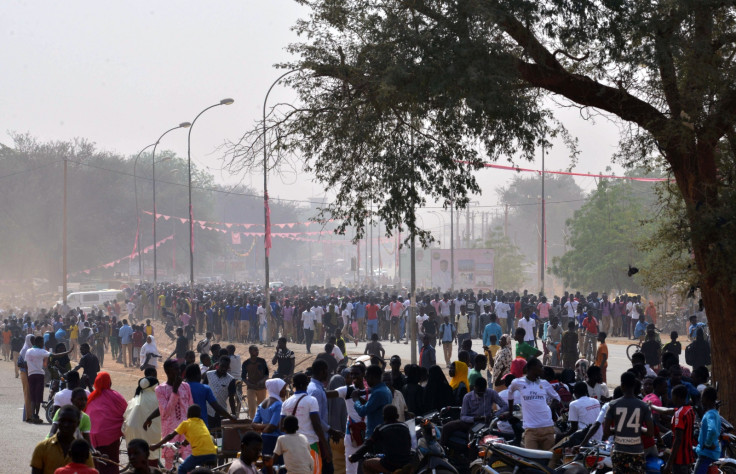Niger's top university shut down by authorities amid violent clashes over student protest
At least 20 students demanding better studying conditions wounded following security forces response.

The university campus of Niger's capital Niamey was shut down "until further notice" on 10 April following violent clashes between students and security forces. Twenty students were reported hurt in the protests where security forces fired tear gas.
Students demonstrations are now allowed in the country, but tens of thousands of students took to the streets to demand better living and studying conditions.
The Union des scolaires nigériens (Niger Students Union, USN) encouraged some 23,000 students to join demonstrations both in Niamey and elsewhere in the country.
In Niamey, pupils and students quickly occupied roads and paralysed traffic near the campus, erecting barricades with tree trunks and rocks and setting fire to tyres.
The security forces, made up of police, gendarmerie and national guard forces, used tear gas to disperse the students, who threw rocks in response, according to footage shown on local television.
Soumana Sambo Houseini, the secretary general of the USN, confirmed 20 students were wounded in the clashes, and several were admitted at the University Hospital for emergency care.
Following the clashes which Higher Education Minister Mohamed Ben Omar described as "serious and unacceptable", the government instructed security forces to remove all students at Niger's top university before 18:00 local time on Monday.
"Due to the actions of students at the University of Niamey and at the demand of academic authorities, the ministry of higher education informs the public of the closure of the campus as of today and until further notice," Omar said in a statement read on state television.
Asked whether the academic year would be considered blank, Omar reassured students, saying the term would be validated.
Houseini, meanwhile, condemned the campus shutdown, claiming it is only a pretext for what he calls "the government's inability to satisfy their (students') demands".
Despite Niger's 1999 Constitution, which ensures most human rights are protected, rights organisations have raised concerns arbitrary arrests and detention, use of excessive force, torture, and extra-judicial killings allegedly carried out by security forces and police in the former French colony.
© Copyright IBTimes 2025. All rights reserved.






















